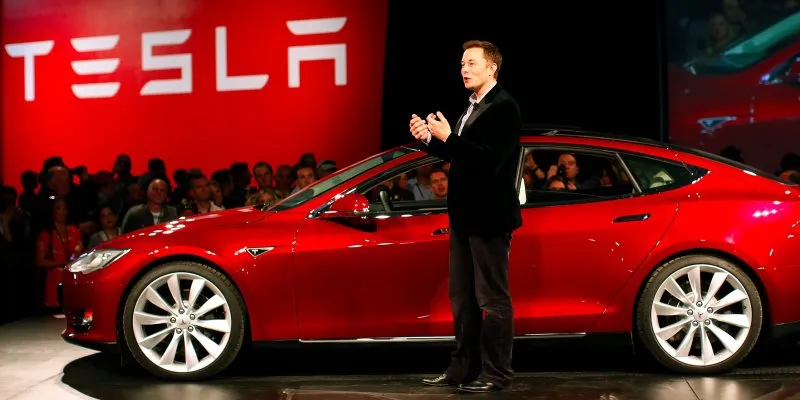Every automobile brand wants to take on Tesla’s Model 3 with their version of a long-range electric car: But why?
Elon Musk may have kick-started a hysterical technology movement ever since Steve Jobs launched the iPhone in 2008. For $35,000, Tesla Inc.’s Model-3 car is expected to offer a range of 346 km on a single charge. Game changing as it may be, it will require a lot of money to get the battery packs and the software ‑ controlling the battery management system ‑ to be on top of the game. So what does Tesla Inc. do? It has raised $2.1 billion in cash after two tranches of stock sale. It will use this money to increase the number of charging stations and also manufacture close to 2,00,000 Model-3 cars. However, the automobile world does not want Tesla Inc. to steal all the thunder from them. So every known brand ‑ from General Motors to Toyota to Ford to Mercedes to BMW to Hyundai – has long-range electric vehicle (EV) strategies in the pipeline.
Ever since the announcement of Tesla’s Model-3, consumers are in love with long-range EVs even before its launch. Expectations of each launch has reached fever pitch, sort of like in tribal societies who expect the birth of a male heir to continue the lineage of the tribe. Tesla’s online bookings were a case in point because the company garnered close to 4,00,000 requests. The company has not revealed how many of them will be delivered by 2018.
But the key to the fever pitch is the 346 km that the Model 3 promises to perform.
But Nissan took a dig at the Model-S with its ad-campaign with the tagline “Why wait when you can drive an all-Electric Leaf. And why drop $1,000 to stand in line when you can get $4,000 cash back and best-in-class range.” Nissan asks a very pertinent question. But are automakers worried? The answer is, yes!

Technology in the long-range EV game
“Every EV car maker’s dream is to increase the range. With new age battery management systems, the battery packs are getting smaller and are more efficient,” says Chetan Maini, Founder of Reva, which was bought by Mahindra & Mahindra in 2010.
A long-range EV is like a phone that offers 4GB RAM and 64GB ROM. The car is now a device and consumers have their data stored in the cloud. Thus, for this one reason Tesla is closer to the consumer than most other automobile companies. Most OEMs have to depend on dealers and disparate diagnostic connected systems to serve the customer. Tesla Inc. can build an entire ecosystem – of startups building on its tech platform – to bridge concepts like the connected home or health or city. The car is the centre of the Universe.
This is the Universe that everyone is entering. The long-range EV of 346 km is the first step. The larger game is in the software to enable various pieces of the connected consumer ecosystem. No wonder automobile vendors like Bosch GmBh and Continental are building software teams to support automobile brands to ramp up their connected ecosystem and are sourcing electric vehicle drive systems to ready future launches of EV cars.
The real debate is global warming
In the middle of all these debates ‑ about range and design ‑ global warming is the argument that is going to move the needle in favour of EVs. Carlos Ghosn, the Chairman of the Renault-Nissan Alliance, has been making a case for EVs to be the only solution to reduce global warming because transportation amounts to 17 percent of the total CO2 emissions in the world. The recently concluded United Nations Climate Change Conference has garnered signatories from 196 nations to limit the rise in global warming to only two degrees centigrade.
Tesla Inc. has made the noises in this direction. Hopefully, other automobile companies have followed the long-range EV debate with the right reasons than the novelty aspect of it. Seriously, these large automobile brands have already made big investments for 2030, when EVs are expected to be 35 percent of the total automobile sales – according to Bloomberg New Energy Finance ‑ in the world.







